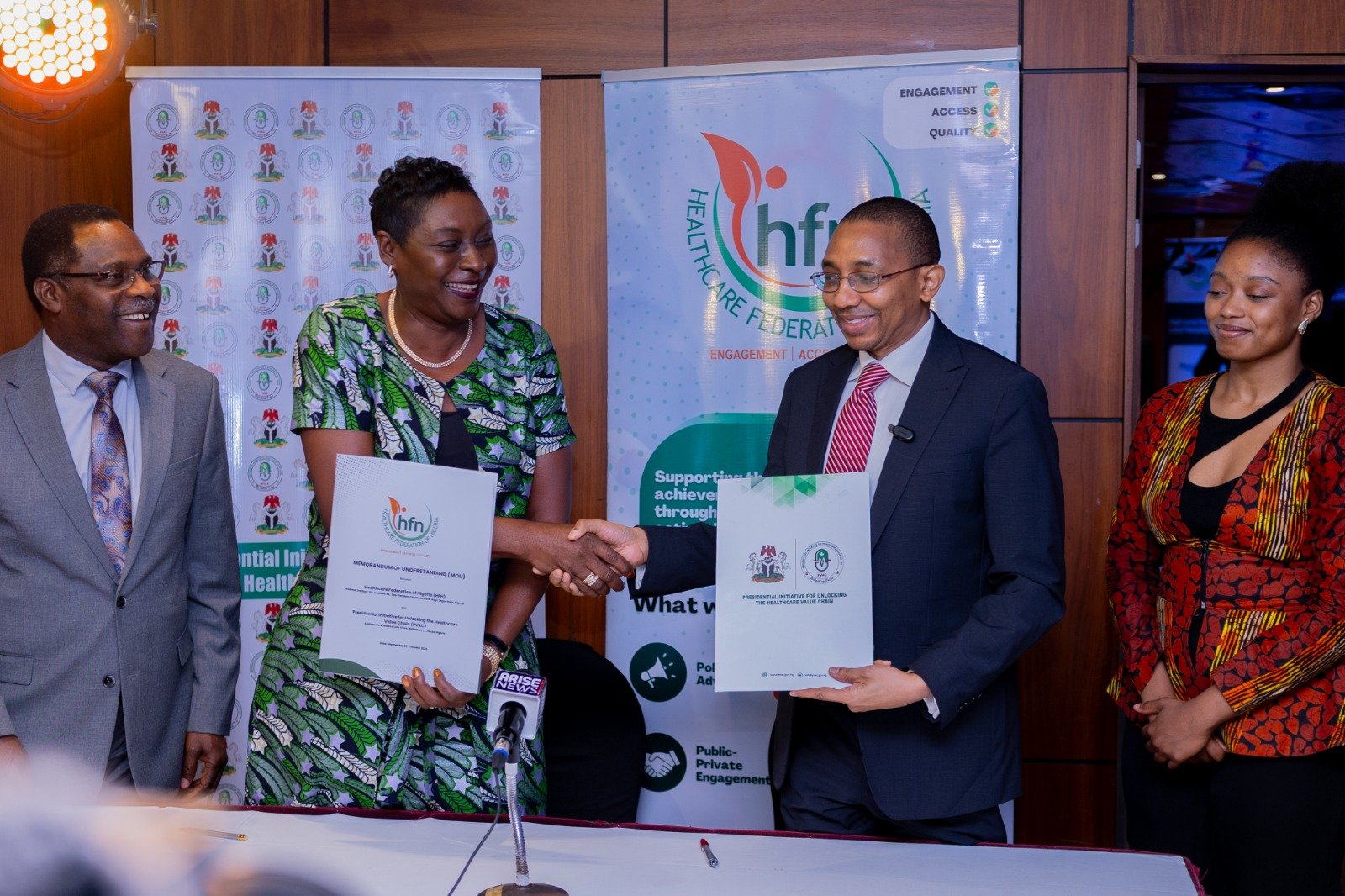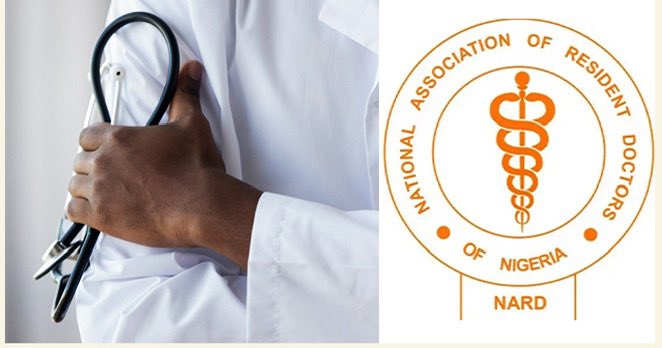Despite accounting for 27 per cent of global malaria cases and 31 per cent of deaths, studies reveal that up to 83 per cent of patients are wrongly treated for malaria based on symptoms alone, without laboratory confirmation, despite national guidelines advocating test-based diagnosis before treatment. NKECHI ONYEDIKA-UGOEZE and IJEOMA NWANOSIKE report that the failure to prioritise diagnostic testing, coupled with poor diagnostic capacity, public misconceptions, and out-of-pocket treatment costs, continues to undermine the country’s malaria control efforts and fuel drug resistance.
Nigeria faces a hidden health crisis driven by misdiagnosis and overtreatment of malaria, which accounts for 27 per cent of the world’s burden. Studies show that up to 83 per cent of suspected malaria cases are wrongly treated, while Lagos reports that 95 per cent of fevers are not malaria. This reliance on guesswork over testing is fuelling drug resistance, masking other deadly diseases, and costing lives.
According to the 2024 World Malaria Report (WMR), Nigeria has 31 per cent of malaria-related deaths worldwide, and the disease remains one of the most significant public health challenges in the country, with an estimated 97 per cent of the population at risk.
The World Health Organisation (WHO) guidelines stipulate that all patients with suspected malaria cases should undergo prompt parasitological confirmation, either through microscopy or a rapid diagnostic test (RDT), before treatment is initiated. Sadly, in the absence of diagnostic tools, treatment may be based on clinical suspicion.
The country’s malaria treatment policy is anchored on the “Test, Treat, and Track” (3Ts) strategy, which emphasises early diagnosis using RDTs or microscopy, followed by treatment with Artemisinin-based Combination Therapy (ACT) for confirmed cases. Despite this policy, experts say that many Nigerians still treat malaria based on symptoms alone, without proper diagnosis, leading to treatment failures and adverse outcomes.
Recently, the Lagos State Commissioner for Health, Akin Abayomi, warned that the vast majority of fever cases in Lagos were not caused by malaria. He noted that about 95 out of every 100 cases of fever are likely due to other causes, and urged healthcare providers to refrain from administering antimalarial drugs without proper diagnosis.
A report titled “Overtreatment of Malaria in the Nigerian Healthcare Setting: Prescription Practice, Rationale, and Consequences,” published in the Pan African Medical Journal, observed that while malaria is prevalent in Nigeria, misdiagnosis of other febrile illnesses as malaria contributes to its perceived burden. Frequent overdiagnoses and overtreatment often result in the neglect of other potentially life-threatening, fever-related conditions.
The report further noted that, despite WHO guidelines, fever is still widely attributed to malaria and treated empirically, leading to the unnecessary use of antimalarial drugs on individuals who do not have the disease. It cited a study at a primary health centre in Lagos, which found an overtreatment rate of 83.1 per cent among children under five.
A similar study in a tertiary health facility in Zamfara State revealed that 79 per cent of participants had received antimalarial drugs without prior testing.
Community health centres, pharmacies, and clinics often treat patients presumptively, resulting in poor health outcomes and avoidable deaths. Consequently, health experts warn that the deeply entrenched practice, often without laboratory confirmation, combined with a shortage of trained microscopists, substandard diagnostic kits, and misdiagnoses, poses a significant challenge to malaria control efforts.
The National Coordinator of the National Malaria Elimination Programme (NMEP), Dr Nnenna Ogbulafor, told The Guardian that although fever is one of the symptoms of malaria, not all fevers are caused by malaria, adding that many people complain of treatment failure because underlying ailments cause the fevers they are treating.
Ogbulafor, who noted that fever is simply a sign that something is wrong in the body and that action should be taken, urged Nigerians and health workers to stop presumptive treatment of fevers and to ensure proper diagnosis for effective outcomes.
She said: “Anything that can affect the human body, whether it’s immunity, stress, or other conditions like cancer, anything that is not going well in the body can manifest as fever. The question is, is it malaria that you’re treating, or you’re treating fever, which is a result of the diarrhoea you have had, or as a result of the stress, bacterial infection? Once the body is unwell, fever is one of the manifestations. You can continue to take anti-malaria; if that fever is not malaria, no matter what you take, it may persist because it is a manifestation of other illnesses.”
Ogbulafor noted that there is evidence showing that, for more than 10 years, Lagos recorded malaria prevalence rates of less than three per cent, adding that the state is currently at the pre-elimination stage.
She insisted that the claim by the Lagos State commissioner for health that 95 out of 100 fevers experienced in Lagos are not caused by malaria was based on evidence.
She added that the Minister of Health and Social Welfare, together with the Lagos State Government, WHO, and other partners, recently launched the malaria pre-elimination pathway for Lagos, designed to accelerate malaria elimination through digital innovations, strengthened case management, and enhanced public-private partnerships.
Ogbulafor attributed Lagos State’s progress in managing malaria to its high level of urbanisation, increased public awareness, and timely treatment of cases, adding that, being a tropical disease, malaria thrives in areas with dense vegetation, but Lagos has reduced such conditions through improved drainage and environmental management.
Ogbulafor, who said that statistics show that over 50 per cent of fever management in the country takes place in private sector settings, including chemists and pharmacies, pointed out that NMEP is working on behavioural change and plans to train pharmacists and chemist shop owners on how to conduct malaria tests, as well as educate patients on the need to prevent malaria by sleeping under mosquito nets.
According to a Professor of Public Health Parasitology at Nnamdi Azikiwe University, Awka, Anambra State, and Founder of the Malaria Eradication and Safe Health Initiative of Nigeria, Prof Dennis Nnanna Aribodor, the World Health Organisation (WHO) recommends prompt malaria diagnosis, either by microscopy or rapid diagnostic tests (RDTs), for all patients with suspected malaria before treatment is administered.
While noting in an interview with The Guardian that the government’s policy for malaria treatment and management also stipulates that testing must precede treatment, Aribodor, however, added that if a patient is critically ill, hospitals can begin treatment immediately to prevent further deterioration, but must still conduct a laboratory test. If the test confirms that there is no malaria, treatment should be discontinued, and attention should be shifted to the underlying issue.
According to the parasitologist, since over 90 per cent of Nigerians pay for healthcare out of pocket, and due to poverty, many opt for quick and cheap alternatives, such as visiting chemists or using herbal remedies, instead of going to hospitals for laboratory testing before treatment.
He also explained that because some patients experience treatment failure due to improper diagnosis, substandard drugs, inappropriate dosages, or misdiagnosis, a lot of emphasis should be placed on the need for tighter control of imported RDT kits to ensure that they are certified and in good condition before deployment, noting that exposure to poor storage conditions can destroy the antibody component of the kits.
The country, he said, faces diverse challenges, including a dearth of microscopists, limited diagnostic capacity, and a lack of funding for research in this area even as many professionals trained in malaria diagnosis using microscopy have left the country.
Consequently, it is important to make the country’s healthcare ecosystem more attractive, friendly, functional, and efficient so that people have confidence in the services provided.
“There is also politics in malaria disease because today, it is foreign countries that produce most of these drugs, and these countries are using it to maintain their economy, and it won’t be in their best interest for malaria to go away because they are using it to sustain their economy.”
On the claim that 95 out of 100 fever cases in Lagos are not caused by malaria, the university don said, “It is a fact that not all fevers are malaria, so the Lagos State commissioner for health may be right. But what we are saying is that it should be backed up with research that is well-funded and well supervised so that the result can be trusted.”
Also, clinicians at the University of Benin Teaching Hospital, supported by expanded diagnostic capacity, have reported an increase in cases of other febrile illnesses, including dengue fever, which were previously misdiagnosed and treated as malaria.
An expert at the institution told The Guardian that this shift is exposing the dangers of Nigeria’s long-standing culture of presumptive treatment, where antimalarial drugs are commonly taken at the first sign of illness without any form of laboratory confirmation.
A public health physician and associate professor at the University of Benin Teaching Hospital (UBTH), Dr Esohe Ogboghodo, raised concerns over the widespread reliance on presumptive treatment of malaria in Nigeria, warning that the symptom profile of the disease closely mirrors that of other infectious conditions.
She explained that the classic symptoms of malaria- fever, chills, body aches, and headache- are also seen in illnesses such as dengue, Lassa fever, typhoid, and viral infections like influenza or COVID-19. This overlap, according to her, makes clinical diagnosis without laboratory confirmation highly unreliable.
Ogboghodo, who also chairs the Infection Prevention and Control Committee and serves as Deputy Chairman of the Medical Advisory Committee (Research and Ethics), stated that many Nigerians continue to treat every fever as malaria due to the over-the-counter accessibility of antimalarial drugs.
She said this behaviour contributes to inappropriate drug use, delayed diagnosis of other diseases, and unnecessary financial burden on households.
At UBTH, she revealed, improved access to PCR testing is beginning to uncover previously masked infections. Dengue fever, for instance, previously misclassified as malaria, is now being correctly identified, thanks to enhanced diagnostic capability.
Ogboghodo explained that these revelations underscore the importance of syndromic surveillance and the need for confirmatory diagnosis before treatment.
She, therefore, advocated for the expansion of rapid diagnostic tests (RDTs) and microscopy across all levels of care, alongside increased public education to encourage test-before-treatment practices.
She also highlighted emerging risks of artemisinin resistance, which, although not yet prevalent in Nigeria, could become a serious threat if inappropriate antimalarial use continues.
Frequent and unnecessary use of ACTs, she said, increases the risk of toxicity, alters gut microbiota, especially in children, and accelerates the development of resistance.
Reinforcing these concerns, the Director of the Centre for Transdisciplinary Research in Malaria and Neglected Tropical Diseases (CTRMNTD), Prof Wellington Oyibo, lamented the slow adoption of RDTs by healthcare providers, despite their proven accuracy and cost-effectiveness in reducing unnecessary treatment.
He noted that some urban areas, such as Lagos, have experienced a significant decline in malaria incidence, yet antimalarial drugs are still routinely dispensed based solely on symptoms.
He concluded that real progress against malaria in Nigeria requires more than just access to treatment, and called for mass mobilisation, behavioural change, strategic partnerships across sectors, and community-led initiatives, particularly in rural and high-risk zones.
According to him, the consistent use of preventive measures and test-based treatment by at least 90 per cent of the population is necessary to reduce the malaria burden significantly. Anything less, he warned, would not yield lasting results.






